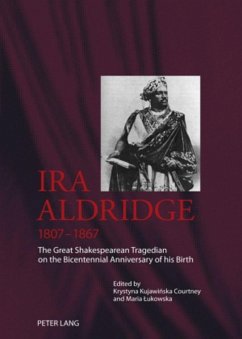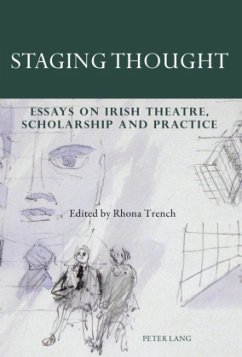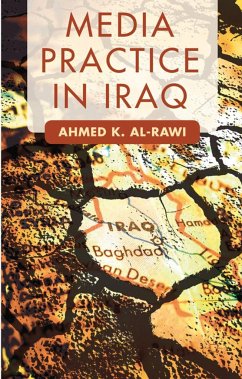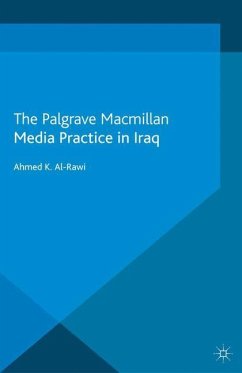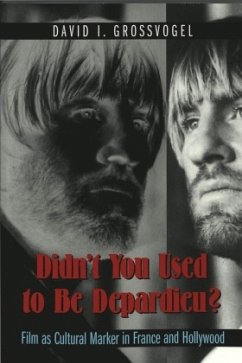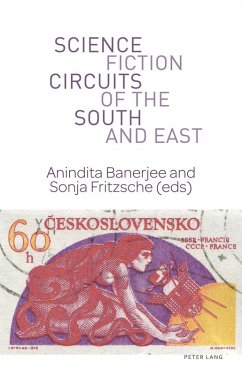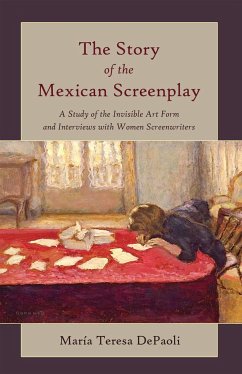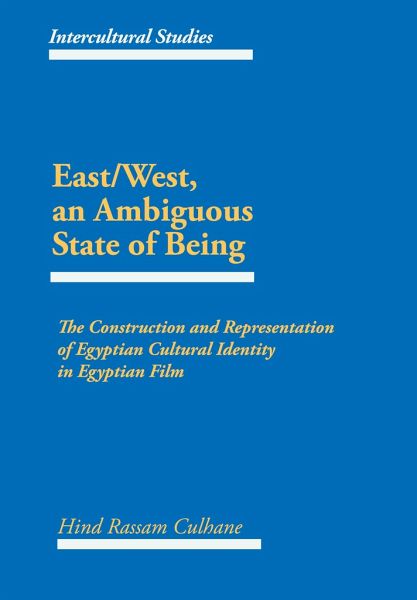
East/West, an Ambiguous State of Being
The Construction and Representation of Egyptian Cultural Identity in Egyptian Film
Versandkostenfrei!
Versandfertig in 6-10 Tagen
55,95 €
inkl. MwSt.

PAYBACK Punkte
0 °P sammeln!
This analysis of an Egyptian film produced in Cairo in the mid-1980s shows how Egyptian cultural identity is represented. The film Khalil Ba'ad Al-Ta'dil (Khalil After Straightening Out) is a mainstream comedy-drama representing Cairo's urban life and some of its concerns and problems: family life, gender roles, jobs, friendship, sex, marriage, parenthood, divorce and love. The imagery of this film is examined including the content of the dialogue in relation to the characters expressing it; the symbolism of the music, songs and sound effects on its soundtrack; and the colors, clothes, offices...
This analysis of an Egyptian film produced in Cairo in the mid-1980s shows how Egyptian cultural identity is represented. The film Khalil Ba'ad Al-Ta'dil (Khalil After Straightening Out) is a mainstream comedy-drama representing Cairo's urban life and some of its concerns and problems: family life, gender roles, jobs, friendship, sex, marriage, parenthood, divorce and love. The imagery of this film is examined including the content of the dialogue in relation to the characters expressing it; the symbolism of the music, songs and sound effects on its soundtrack; and the colors, clothes, offices, houses, buildings and streets of its settings. This film constructs these images and symbols and what they say about who and what is Egyptian and who and what is Western. These elements are used by the filmmaker to illustrate and highlight the differences.



